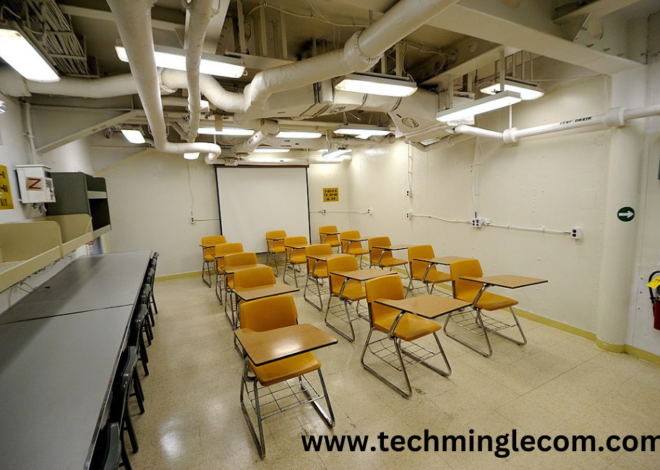
Ministry of Education Quiz Part 2: 100% Master the Curriculum
Ministry of Education Quiz Part 2: Enhancing Knowledge and Critical Thinking

Ministry of Education Quizzes have always played a significant role in the educational journey. They’re not just about recalling facts but about applying knowledge, thinking critically, and solving problems. Today, we’ll dive deep into the Ministry of Education Quiz, specifically focusing on its second part, exploring its nuances, benefits, and how to excel in it.
What is the Ministry of Education Quiz?
The Ministry of Education Quiz is a structured assessment designed to evaluate students’ knowledge across various subjects. It aims to foster a competitive spirit while encouraging a deep understanding of the curriculum. Primarily targeted at school students, it serves as an educational tool that goes beyond traditional classroom teaching.
Benefits of Participating in the Ministry of Education Quiz
Enhances Knowledge
Participating in quizzes helps students consolidate what they have learned. It requires them to go beyond rote memorization, pushing them to understand concepts and apply them in different contexts.
Encourages Critical Thinking
Quizzes challenge students to think on their feet. By dealing with unexpected questions and scenarios, they develop the ability to analyze information critically and make reasoned decisions quickly.
Promotes Active Learning
Unlike passive learning methods, quizzes demand active engagement. Students must actively recall information, which strengthens their memory and aids long-term retention.
Builds Confidence
Successfully answering quiz questions can significantly boost a student’s confidence. It reassures them of their knowledge and abilities, which is crucial for their academic journey.
How to Prepare for the Ministry of Education Quiz

Study Materials and Resources
Preparation is key. Utilize textbooks, online resources, and educational videos to cover all topics comprehensively. Websites like Khan Academy and Coursera offer valuable resources that can be extremely helpful.
Effective Study Techniques
Active learning techniques such as summarizing information, teaching peers, and creating mind maps can enhance understanding and retention. Incorporating these into your study routine can make a significant difference.
Importance of Practice Quizzes
Regular practice with mock quizzes can familiarize students with the format and timing of the actual quiz. This practice can alleviate anxiety and improve performance.
Types of Questions in the Quiz

Multiple-Choice Questions
These questions test a wide range of knowledge and are designed to assess recall and comprehension.
True or False Questions
These are straightforward but require a deep understanding to avoid traps in the statements.
Short Answer Questions
These questions demand concise responses and test the ability to recall specific information quickly.
Essay Questions
Essay questions evaluate a student’s ability to express ideas clearly and argue points effectively. They require a structured approach and critical thinking.
Sample Questions and Answers
Multiple-Choice Sample Question
Question: What is the capital of France?
- A) London
- B) Berlin
- C) Paris
- D) Madrid
Answer: C) Paris
True or False Sample Question
Question: The Earth is flat.
- True
- False
Answer: False
Short Answer Sample Question
Question: Name the process by which plants make their food.
Answer: Photosynthesis
Essay Sample Question
Question: Discuss the impact of the Industrial Revolution on modern society.
Answer: (Here, a detailed essay would explore various aspects such as technological advancements, changes in labor systems, urbanization, and economic impacts.)
Strategies for Answering Different Types of Questions
Tips for Multiple-Choice Questions
- Read all options before choosing.
- Eliminate obviously wrong answers to improve your chances if guessing.
Tips for True or False Questions
- Watch out for absolute terms like “always” or “never,” which can often indicate a false statement.
- Consider the context of the statement thoroughly.
Tips for Short Answer Questions
- Be precise and to the point.
- Include key terms and concepts.
Tips for Essay Questions
- Outline your answer before writing.
- Ensure you have a clear thesis statement.
- Use paragraphs to structure your argument.
Common Mistakes to Avoid
Misreading Questions
Always read the question carefully. Misunderstanding the question can lead to incorrect answers.
Overthinking Answers
Trust your knowledge. Overthinking can lead to changing correct answers to incorrect ones.
Poor Time Management
Practice pacing yourself to ensure you have enough time to answer all questions.
Lack of Preparation
Adequate preparation cannot be overstated. Use available resources and practice consistently.
The Role of Teachers and Parents
Supporting Students’ Preparation
Teachers and parents play a crucial role in guiding and supporting students through their preparation. This includes providing resources, setting study schedules, and offering encouragement.
Providing Resources and Guidance
They can help identify useful study materials and explain difficult concepts, making the learning process smoother.
Encouraging a Positive Mindset
A positive mindset can greatly influence a student’s performance. Encouragement and motivation from teachers and parents are essential.
Online Resources and Tools
Educational Websites
Websites like Khan Academy, Coursera, and BBC Bitesize offer comprehensive resources for various subjects.
Quiz Apps and Platforms
Apps like Quizlet and Kahoot make studying interactive and fun, providing various quiz formats for practice.
Interactive Learning Tools
Tools such as mind maps and flashcards can aid in visual learning and memory retention.
The Importance of Feedback
How Feedback Helps in Improvement
Feedback is essential for recognizing strengths and pinpointing areas that need improvement.. It helps students understand what they did well and what needs more work.
Ways to Give and Receive Feedback
Teachers should provide constructive feedback, while students should be open to receiving it and using it to improve their study habits.
Implementing Feedback in Study Routines
Incorporate feedback into regular study routines to continually improve and refine knowledge and skills.
Success Stories
Real-Life Examples of Quiz Participants
Many students have excelled academically and gained confidence through their participation in quizzes. These success stories can be inspiring for new participants.
How the Quiz Helped Them Academically and Personally
Quizzes have helped students improve their grades, build confidence, and develop critical thinking skills that benefit them beyond academics.
Challenges and Solutions
Common Challenges Faced by Participants
Participants often face challenges like time management, stress, and difficult questions.
Effective Solutions to Overcome These Challenges
Solutions include regular practice, relaxation techniques, and seeking help from teachers and peers.
Future of the Ministry of Education Quiz
Potential Developments and Improvements
Future quizzes may incorporate more technology, making them more interactive and accessible.
The Role of Technology in Future Quizzes
Technology can provide instant feedback, diverse question formats, and a more engaging experience for participants.
Conclusion
The Ministry of Education Quiz is more than just a test; it’s a valuable educational tool that promotes learning and personal growth. By participating, students enhance their knowledge, develop critical thinking skills, and gain confidence. With the right preparation and mindset, they can excel and reap the many benefits these quizzes offer.
FAQs
What age group is the Ministry of Education Quiz for?
The quiz is typically designed for school students ranging from elementary to high school levels.
How often is the quiz conducted?
The quiz is usually conducted annually, though the exact frequency can vary by region.
Can teachers participate in the Ministry of Education quiz?
While the primary participants are students, teachers can be involved in guiding and preparing their students for the quiz.
Are there prizes for top performers in Ministry of Education quiz ?
Yes, top performers often receive certificates, trophies, and sometimes scholarships or other academic incentives.
How can I register for the next quiz?
Registration details are usually available on the Ministry of Education’s official website or through school announcements.


